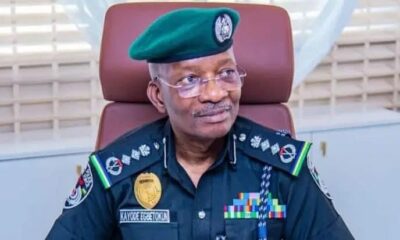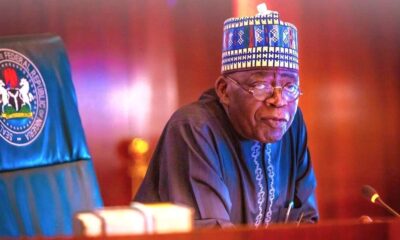Politics
PREEMPTIVE ANALYSIS OF STAKEHOLDERS RESPONSIBILITIES IN THE ONCOMING 2024 IMO STATE LOCAL GOVERNMENT ELECTION AND ACCENTUATING THE CONSTITUTIONAL FUNCTIONS OF A LOCAL GOVERNMENT COUNCIL- A NEW NORMAL IS POSSIBLE!
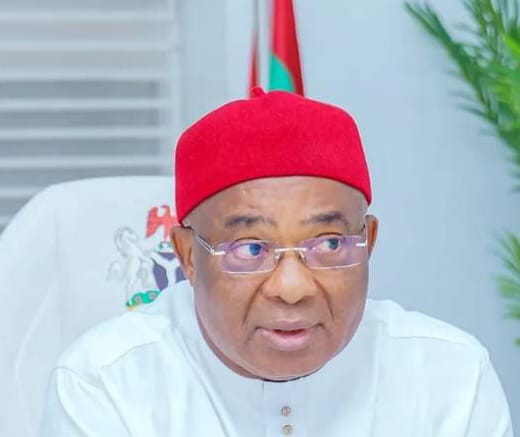
Prof. Nnamdi Obiaraeri
The oncoming Local Government Council election in Imo State to be conducted by the Imo State Independent Electoral Commission (abbreviated as “ISIEC”) is unarguably a right and commendable step towards returning democratic rule in the Local Government system in Imo State. This trajectory is however inevitable and inescapable given the radical and far reaching implications of the recent 11 July 2024 judgment of the Supreme Court in the Local Government Autonomy Case (A-G FEDERATION v A-G ABIA STATE & 35 ORS) proclaiming that the system of local government by democratically elected Local Government Councils guaranteed under section 7 of the Constitution of the Federal Republic of Nigeria, 1999 as amended must be scrupulously obeyed.
Before the euphoria of the scheduled Local Government election in Imo State overshadows the grim realities on ground, it is important do five significant things ahead of time namely- to charge political parties to conduct free, fair and credible primary election; to charge the ISIEC to conduct free, fair and credible inter party Local Government election; to underscore the compelling need for Imo electorates to elect only highly qualified, credible, competent and capable men and women to be in charge of the affairs of the Local Government Councils and Legislative Councils; to remind the Imo State Judiciary to set up impartial Local Government Election Tribunal that will expeditiously dispose post-election petitions; and to accentuate the constitutional functions of Local Government Areas.
There are 27 Local Government Areas and 305 INEC Wards in Imo State. Barring last minute changes, the ISIEC is expected to conduct election to elect 27 Local Government Area Chairmen and Vice-Chairmen and 305 Wards Councilors on 21 September 2024. Hence, all stakeholders in the proposed election are being reminded of their respective duties and responsibilities in a nutshell in this intervention.
For the political parties, the concept of internal party democracy will demand that political parties desiring to sponsor candidates in the scheduled Local Government election in Imo State should be able to conduct free, fair and credible party primary elections to select their Chairmanship and Councillorship candidates. Though, political parties in Nigeria are not known to conduct free and fair primary elections, they are reminded to have a change of character beginning from the Imo State Local Government election. Imposition of candidates by party big wigs after collecting huge sums of money for expression of interest/nomination forms from countless aspirants is not only undemocratic but immoral and wicked. Political parties are reminded that the quality of candidates they sponsor in an election invariably affects the quality of candidates left for voters to choose from. It is garbage in, garbage out (GIGO) where there is little or nothing for the voter to choose from the run-of-the-mill candidates sponsored by parties in an election. Leadership debacle in Nigeria stems from poor leadership recruitment process beginning from skewed party primary elections that favour mediocrity over merit. Nigerian political parties can afford to do better although it is difficult to ask Nigerian politicians not to see politics a roguish business.
For the electoral umpire being the State Independent Electoral Commission established under section 197(1)(b) of the Constitution of the Federal Republic of Nigeria, 1999 as amended, they are mandated under the constitution to be “independent” in order to be able to conduct free, fair and credible State based elections. It is public knowledge that the words or terms “independent”, “free”, “fair” and “credible” and whatever they truly denote in reference to elections are alien to Nigeria’s electoral jurisprudence. Whether conducted by the Independent National Electoral Commission (often abbreviated as “INEC”) or by the respective State Independent Electoral Commission, elections in Nigeria are notoriously a “do or die” affair and always less than credible. Overtime, and across the different States in the country, elections conducted by State Independent Electoral Commissions into Local Government Councils have become synonymous with “CARRY GO” syndrome where the ruling party in the very State will sweep all seats contested regardless of the sanctity of lawful majority votes cast. It is against this disreputable background that public expectation is very high on the part of the Imo State Independent Electoral Commission to inject a paradigm shift by conducting a Local Government Council election in Imo State that will be seen and adjudged to be free, fair and credible. This appears to be a tall order but it can be done and should be done by the ISIEC. Votes of Imo electorates must not only be transparently counted, the counted votes must count. Anything short of this is a fail grade!
On the part of the electorates in Imo State, they are enjoined to eschew violence and elect only candidates that are highly qualified, competent and capable to be put in charge of affairs as Executive Chairmen/Vice Chairmen and Ward Councilors in the respective Local Government Councils. Only patriotic, responsible and responsive candidates who are altruistic and not beholden to “godfathers” or “godmothers” should be elected. So far, the quality of persons showing interest as aspirants in the Chairmanship and Councillorship seats are encouraging. Only time will tell whether, on being elected, they will deliver the dividends of democracy or whether they will characteristically turn to become impervious to wise counsel, inaccessible (“eze onye agwalam”), disconnected from the people and their needs, greedy, corrupt and rapacious. Imo people expect that when elected, these officials will remain responsible and responsive for the job ahead is enormous as the constitutional functions of the Local Government Councils are humungous.
As the approaching Local Government election is a very serious inter party contest, post-election disputes are bound to occur. As a corollary, it is expected that the Chief Judge of Imo State will constitute Local Government Election Tribunals to enable aggrieved political parties and or their candidates timeously file their post-election petitions and receive appropriate redress as allowed under the rule of law. The Nigerian Constitution is founded on the rule of law the primary meaning of which is that everything must be done according to law. The judiciary cannot shirk its constitutional responsibility of impartial adjudication bestowed on it in section 6 of the Constitution of the Federal Republic of Nigeria, 1999 as amended. Hence, judgments or decisions of the Local Government Tribunals, when rendered or delivered, must inspire public confidence. Justice is rooted in confidence. In the case of GARBA v FEDERAL CIVIL SERVICE COMMISSION & ANOR (1988) LPELR-1304(SC) (Pp. 28-29 paras. C), the Supreme Court per Eso JSC said among other things that “For the Judiciary, a powerful arm of government to operate under the rule of law, full confidence, and this must be unadulterated, must exist in that institution. It must indeed be demonstrably shown.” Enough said on the need for unadulterated public confidence on the judiciary.
Finally, on the duties and responsibilities of the 768 Local Government Areas created under section 3(6) of the Constitution of the Federal Republic of Nigeria, 1999 as amended, it is beyond argument that as a result of prolonged asphyxiation, usurpation and appropriation of its responsibilities by the States, over the years, many Nigerians have forgotten the functions of the Local Governments. Many others may not even know that the Local Government is saddled with clear-cut constitutional duties. Out of abundant caution, the functions of a Local Government Council as expressly stated in the Fourth Schedule of the Constitution of the Federal Republic of Nigeria, 1999 as amended are as follows:
1. The main functions of a local government council are as follows:
(a) the consideration and the making of Recommendations to a State commission on economic planning or any similar body on –
(i) the economic development of the State, particularly in so far as the areas of authority of the Council and of the State are affected, and
(ii) proposals made by the said Commission or body;
(b) collection of rates, radio and television licences;
(c) establishment and maintenance of cemeteries, burial grounds and homes for the destitute or infirm;
(d) Licensing of bicycles, trucks, (other than mechanically propelled trucks), canoes, wheel barrows and carts;
(e) establishment, maintenance and regulation of slaughter houses, slaughter slabs, markets, motor parks and public conveniences;
(f) construction and maintenance of roads, streets, street lightings, drains and other public highways, parks, gardens, open spaces, or such public facilities as may be prescribed from time to time by the House of Assembly of a State;
(g) naming of roads, and streets and numbering of house;
(h) provision and maintenance of public conveniences; sewage and refuse disposal;
(i) registration of all births, deaths and marriages;
(j) assessment of privately owned houses or tenements for the purpose of levying such rates as may be prescribed by the House of Assembly of a State; and
(k) control and regulation of –
(i) out-door advertising and hoarding’
(ii) movement and keeping of pets of all description
(iii) shops and kiosks’
(iv) restaurants, bakeries and other places for sale of food to the public,
(v) laundries, and
(vi) licensing, regulation and control of the sale of liquor.
A note of caution must be sounded that the Local Government is subordinated to the State Government just as the State is subordinated to the Federal Government. Although Local Government Councils enjoy autonomy, for sustainable and even development to take root in any given State, there must be intentional cooperation and synergy between the State and Local Government Councils. A fully functional Local Government system is an indispensable handmaid for good governance in any State. The Local Government Council is the grassroots government or government closest or nearest to the people. Hence, under section 2 of the Fourth Schedule of the Constitution of the Federal Republic of Nigeria, 1999 as amended, the functions of the Local Government Council shall also include participation of such Council in the Government of a State as respects the following matters-
(a) the provision and maintenance of primary, adult and vocational education;
(b) the development of agriculture and natural resources other than the exploitation of minerals;
(c) the provision and maintenance of health services; and
(d) such other functions as may be conferred on a Local Government Council by the House of Assembly of the State.
Conclusively, return of democratically elected Local Government Councils in Imo State will wake up all comatose, moribund By-laws or forgotten departments and organs in the Local Government Councils. Of a truth, a well-run Local Government system will reduce undue political and development pressure on the State Government as it will help foster grassroots politics, restore security and fastrack development in the rural areas. When elected and sworn into office, the Chairmen and Councilors should always remember that security and welfare of the people is the primary purpose of government. No excuses. Imo people are encouraged ahead of time to be prepared to hold them responsible and accountable. The days of diaspora governance in the Local Governments and reckless use of public resources should be over.
A new normal is possible!
Politics
Accord Party Crisis Deepens As Another Governorship Candidate Emerges For Osun Polls
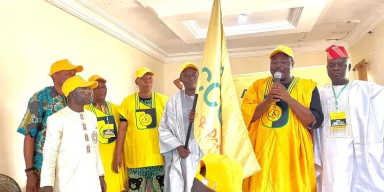
A faction of Accord Party has held its own governorship primary, where Mr. Clement Bamigbola emerged as the faction’s governorship candidate for the 2026 Osun State election.
This is coming just four days after the emergence of Governor Ademola Adeleke as the party’s flag-bearer.
Recall that the party under the leadership of Maxwell Mgbudem, on Wednesday, held a similar exercise which produced Governor Ademola Adeleke as the party’s candidate.
However, a faction of the party rejected his emergence, insisting that Barrister Maxwell Mgbudem is not the legally recognized national chairman of the Accord Party.
In a fresh development on Sunday, about 300 delegates of the Accord Party from across Osun State elected Bamigbola as the factional candidate during a primary held at Regina Suite, Osogbo.
Bamigbola emerged through a voice vote conducted by the delegates, after which the Chairman of the Primary Committee, Hon. Olufemi Ogundare, declared him the party’s candidate for the 2026 Osun State governorship election.
Politics
Tinubu, ECOWAS leaders meet in Abuja over Benin coup, regional stability
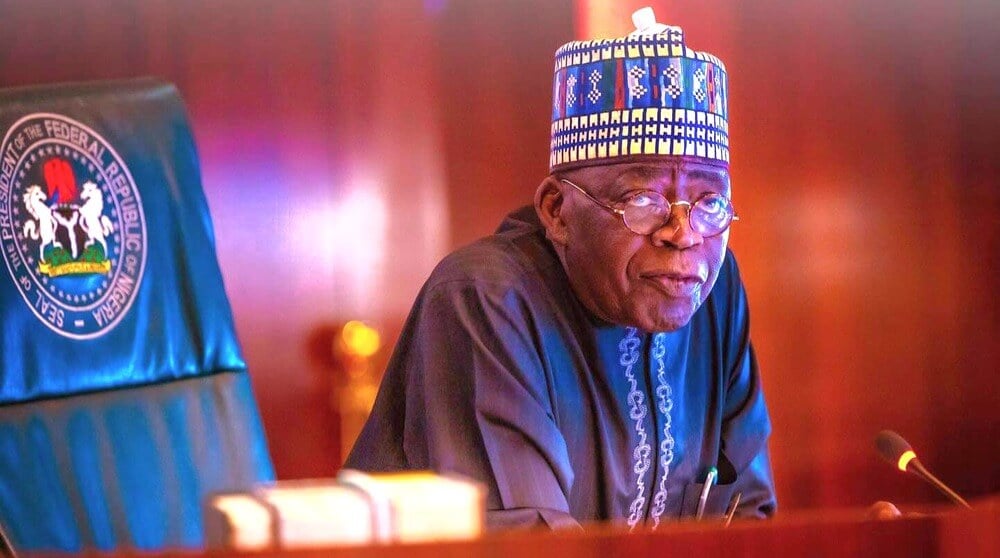
President Bola Tinubu and leaders of ECOWAS countries are currently meeting in Abuja.
The 68th Ordinary Session of the ECOWAS Authority of Heads of State and Government is taking place at the State House Conference Centre, in Abuja.
Leaders of West African countries at the meeting include President Julius Bio (Sierra Leone, ECOWAS Chair), President Patrice Talon (Benin), José Maria Neves (Cabo Verde) and Alassane Ouattara (Côte d’Ivoire).
Others are Adama Barrow (The Gambia), John Mahama (Ghana), Umaro Embaló (Guinea-Bissau), Joseph Boakai (Liberia), Bassirou Faye (Senegal) and Faure Gnassingbé (Togo).
The meeting is coming against the backdrop of five turbulent years for West Africa, which saw coups in Mali (2020, 2021), Burkina Faso (twice in 2022), and Niger (2023).
The latest incidents include an attempted coup in Benin on December 7, 2025, and renewed instability in Guinea-Bissau.
At the time of filing this report, details of the meeting are yet to be disclosed.
Politics
Breaking: Diri Orders Autopsy on Bayelsa Deputy Governor’s Death, Warns Against Politicisation
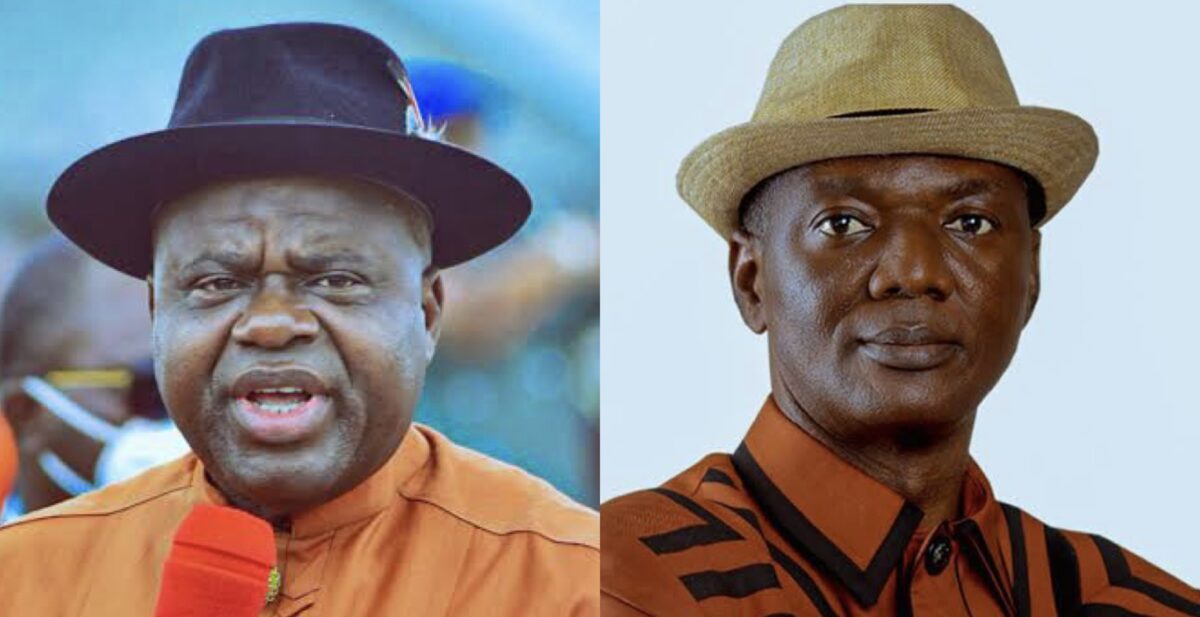
Bayelsa State Governor, Senator Douye Diri, has ordered an autopsy to determine the cause of death of the state’s Deputy Governor, Lawrence Ewhrudjakpo.
Governor Diri gave the directive on Saturday while receiving former President Goodluck Jonathan at the Government House in Yenagoa.
Reacting to the incident, the governor condemned what he described as widespread misinformation and speculation on social media, warning against any attempt to politicise the deputy governor’s death.
“I want to make an appeal. I have seen people politicise his death. In Ijaw land, there is no enmity in death. Let nobody politicise the passing of our dearly beloved deputy governor,” Diri said.
“If anyone truly loves him, this is the time to show it. I have directed that an autopsy be carried out to reveal the cause of his death. There is a lot of nonsense going on on social media.”
The governor further urged the public to focus on mourning and honouring the late deputy governor, noting that the state government had declared three working days of mourning in his honour.
“If anyone is issuing statements to eulogise him, let it end there. Let us mourn him because Bayelsa State is in a mourning mood,” he added.
Governor Diri also called for unity and love among the people, reminding them of the inevitability of death.
Speaking during the condolence visit, former President Goodluck Jonathan described the late Ewhrudjakpo as a committed and dedicated individual who played a key role in the activities of his foundation.
“For me, he was someone my foundation and I will never forget. He represented the governor in all our programs,” Jonathan said, adding that Ewhrudjakpo worked tirelessly in that role, even more than when he served as deputy governor.
-
Business1 year ago
US court acquits Air Peace boss, slams Mayfield $4000 fine
-

 Trending1 year ago
Trending1 year agoNYA demands release of ‘abducted’ Imo chairman, preaches good governance
-

 Politics1 year ago
Politics1 year agoMexico’s new president causes concern just weeks before the US elections
-

 Politics1 year ago
Politics1 year agoPutin invites 20 world leaders
-

 Politics1 year ago
Politics1 year agoRussia bans imports of agro-products from Kazakhstan after refusal to join BRICS
-
Entertainment1 year ago
Bobrisky falls ill in police custody, rushed to hospital
-
Entertainment1 year ago
Bobrisky transferred from Immigration to FCID, spends night behind bars
-
Education1 year ago
GOVERNOR FUBARA APPOINTS COUNCIL MEMBERS FOR KEN SARO-WIWA POLYTECHNIC BORI








